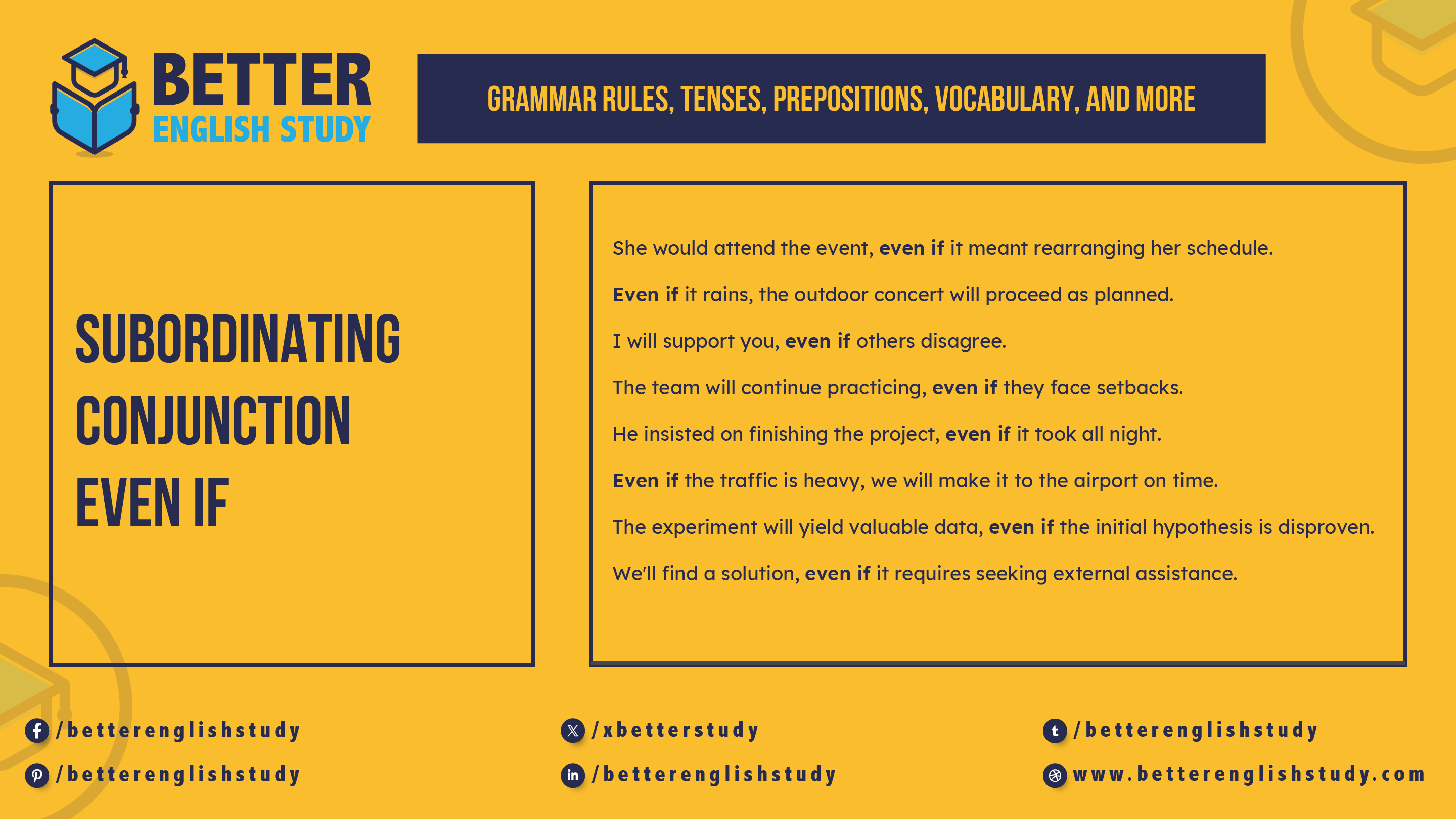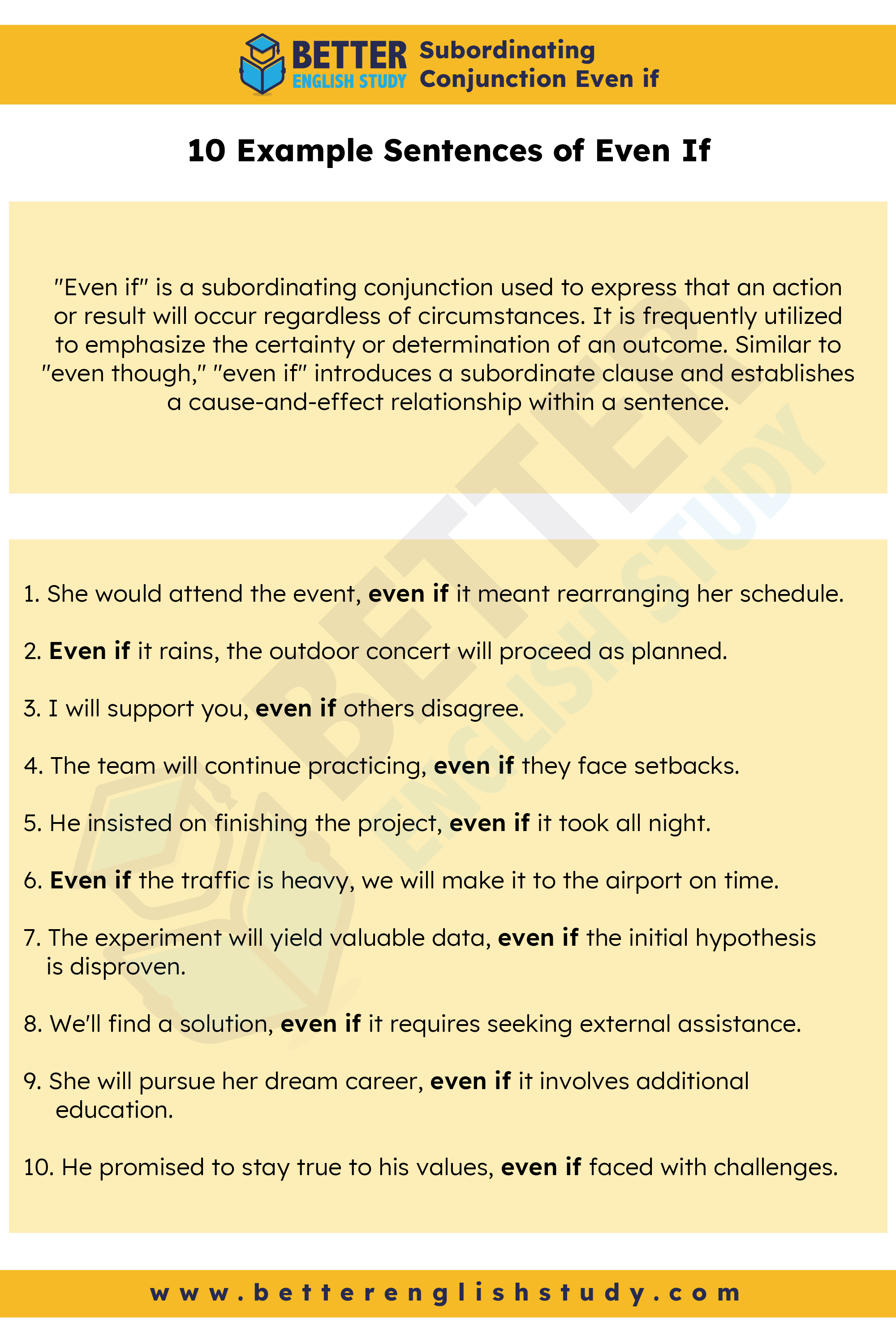
In the rich tapestry of the English language, subordinating conjunctions play a crucial role in expressing relationships between ideas. “Even if,” with a meaning akin to “even though,” is a powerful connector often employed to convey the inevitability of an action or result.
This article explores the various nuances of using “even if” in sentences, examining its rules, applications, and distinctions from other similar constructions.
Use of Even If in a Sentence
“Even if” is a subordinating conjunction used to express that an action or result will occur regardless of circumstances. It is frequently utilized to emphasize the certainty or determination of an outcome. Similar to “even though,” “even if” introduces a subordinate clause and establishes a cause-and-effect relationship within a sentence.
10 Example Sentences of Even If
- She would attend the event, even if it meant rearranging her schedule.
- Even if it rains, the outdoor concert will proceed as planned.
- I will support you, even if others disagree.
- The team will continue practicing, even if they face setbacks.
- He insisted on finishing the project, even if it took all night.
- Even if the traffic is heavy, we will make it to the airport on time.
- The experiment will yield valuable data, even if the initial hypothesis is disproven.
- We’ll find a solution, even if it requires seeking external assistance.
- She will pursue her dream career, even if it involves additional education.
- He promised to stay true to his values, even if faced with challenges.
What is the Rule of “Even If”?
The rule of “even if” involves using it to introduce a subordinate clause that presents a potential obstacle or contrary circumstance. For instance, “She will go to the party, even if she has to go alone” indicates a determination to attend despite the possibility of being alone.
Can You Start a Sentence with “Even If”?
Yes, you can start a sentence with “Even if.” For example, “Even if it snows heavily, the event will take place as scheduled.” Starting with “even if” emphasizes the resilience or certainty of the main clause.
If or “Even If” – Which is Correct?
Both “if” and “even if” are correct but convey different meanings. “If” introduces a conditional clause with uncertainty, while “even if” emphasizes certainty. For example:
- “He will come if you invite him.” (conditional)
- “He will come, even if you don’t invite him.” (emphasis on certainty)

Is it “Even When” or “Even If”?
The choice between “even when” and “even if” depends on the context. “Even when” is used when an event is certain, while “even if” implies a condition. For example:
- “Even when it snows, the city remains operational.” (certainty)
- “Even if it snows heavily, the event will proceed.” (condition)
“Even If” or “Even Though” – Which is Correct?
Both “even if” and “even though” are correct, but their usage depends on the emphasis. “Even if” stresses the certainty of the outcome, while “even though” emphasizes the contrast. For example:
- “She will attend the meeting, even if she disagrees.” (certainty)
- “She will attend the meeting, even though she disagrees.” (contrast)
Understanding the nuances of “even if” enhances one’s ability to convey determination, certainty, and conditional relationships in various contexts. As a versatile subordinating conjunction, it adds depth and precision to the expression of ideas in the English language.
